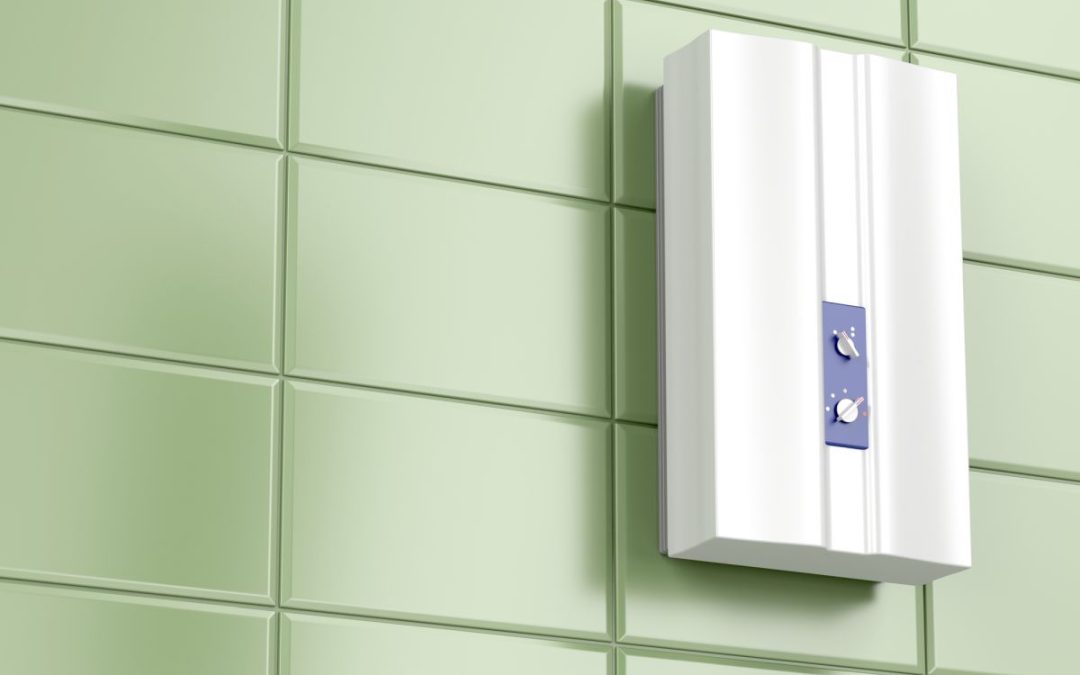Water heating is an essential part of any home, and there are a variety of options for homeowners to choose from. Understanding the differences between tank and tankless water heating equipment can be difficult, but making the right decision is key to ensuring a home has sufficient hot water.
Midwest Plumbing professionals will provide an in-depth look at the pros and cons of tank and tankless systems in terms of both initial cost and long-term energy savings. With this information, readers will have all they need to make an informed decision about which type of water heating equipment is best for them.
What Are The Key Differences Between Tank And Tankless Water Heating Systems?
Tank and tankless water heating systems are two popular options for residential and commercial buildings. On-demand or instantaneous hot water heaters, commonly referred to as tankless hot water heaters, offer an unending supply of hot water without the need to wait. In contrast, traditional tank-style water heaters store a certain amount of hot water in an insulated tank until it is needed.
In terms of energy efficiency, tankless hot water heaters are typically more efficient than tank-style units. This is because they only use energy when hot water is demanded and do not continuously use power to maintain a heated reservoir of stored hot water. However, due to their installation requirements, such as needing access to a natural gas or propane line, they may be more costly to install than traditional tanks.
No matter which type of system is installed, regular maintenance will help ensure its optimal performance for years to come. It is important for homeowners and business owners alike to consult with a professional installer who can recommend the best solution based on their specific needs and budget.
What Factors Should I Consider When Choosing Between A Tank And Tankless Water Heating System?
When comparing tank vs. tankless systems, there are several factors to consider:
- Installation Costs: Installing a tankless system is typically more expensive than installing a traditional tank water heater. However, over time, the cost savings from reduced energy consumption may make up for the difference in installation costs.
- Gallons of Hot Water: Traditional tank water heaters store heated water in a large storage tank and can provide up to 80 gallons of hot water per hour. Tankless systems, however, only heat up water as it is needed and, therefore, can provide an unlimited supply of hot water.
- Energy Efficiency: Tankless systems are more energy efficient than traditional storage-tank systems due to their on-demand technology and lack of standby heat loss from stored hot water. Additionally, some models offer advanced features such as smart thermostats that allow users to set temperature limits or auto shutoff when not in use which further increases energy efficiency.
When deciding between a tank and tankless model, one should carefully weigh their needs and budget considerations against the various pros and cons of each type of system. It is also important to research all the possible options before making a decision so that you can choose the most suitable option for your home’s specific needs.
Ultimately, with proper research and consideration of all factors involved, you will be able to choose between a tank and/or tankless model that best meets your expectations for reliable performance with maximum energy efficiency.
What Is A Tankless Water Heater?
Tankless water heaters are electrical or gas-powered appliances that provide hot water on an on-demand basis. Unlike a tank storage heater, which keeps a large volume of heated water in reserve, a tankless water heater only heats the water when it is needed. This type of water heater is more energy efficient than traditional tank models, using up to 20 percent less energy than standard electric or gas-powered units. It also has a much longer life expectancy than conventional tank models and can save users up to 40 percent on their utility bills.
Below are some key benefits of choosing a tankless water heater over other types:
- Instant Hot Water: Tankless models provide hot water on demand, meaning you don’t have to wait for the unit to fill up before enjoying hot showers or baths.
- Lower Monthly Costs: Tankless models consume less energy than traditional tanks and can save you on your monthly utility bills.
- Longer Lifespan: Tankless units can last up to twice as long as tank storage heaters, with an average lifespan of 15-20 years compared to 10 years or less for tanks.
- Compact Size: The smaller size of tankless units makes them ideal for small spaces like apartments or condos where space is limited.
What Are The Drawbacks Of Installing A Tankless Water Heater?
When considering water heating equipment, homeowners must decide between a tank and a tankless water heater. Though tankless water heaters have a longer life expectancy and can provide an endless supply of hot water, there are several drawbacks that must be considered before installation.
- Cost: Tankless water heaters are more expensive than conventional tank storage models. On top of the initial purchase price, the installation cost of a tankless system is usually higher due to additional components such as venting and additional electric wiring or gas lines.
- Fuel Types: While some models can burn multiple fuel sources, most require either natural gas or propane to operate efficiently and will not work with electricity alone.
- Standby Heat Loss: Although these units do not store hot water as tanks do, they still lose some heat through their pipes when not in use. This standby heat loss increases monthly utility bills slightly compared to that of a standard model, depending on usage patterns.
Tankless systems require regular maintenance due to the high-efficiency condensing technology used in their operation and may need more frequent servicing than traditional models. Furthermore, many newer models may require additional modifications to existing plumbing and electrical systems in order for them to function properly, adding even more costs during installation time.
For those considering installing a tankless system, it is best to contact a professional installer who specializes in this type of equipment before making any final decisions about which option will work best for them.
What Is A Tank Water Heater?
A tanked water heat system utilizes a storage tank to hold heated water for use in homes and businesses. The tanked water heater works by heating up the water inside the storage tank with a gas or electric heat source and then circulating it through pipes within the home to provide hot water when needed.
The most common type of tanked system utilizes natural gas as its primary fuel source for heating up the stored water in its tank. The furnace heats and circulates cold water from municipal sources through a heat exchanger, which transfers heat from the gas flame into the cold incoming water. This process creates hot water stored in the tank until it is called upon by various fixtures throughout the home.
What Type Of Maintenance Is Required For Tank Water Heaters?
Tank water heaters require regular maintenance in order to keep them operating efficiently and safely. The heater should be inspected and serviced at least once a year by a qualified master plumber or heater installer.
It is important to check the temperature-pressure relief valve, the anode rod, and other components of the tank for proper operation. If a problem is detected during maintenance, it should be repaired or replaced promptly. Additionally, it is important to keep the area around the water heater free from dust and debris, which could cause a fire hazard.
The pilot light must also be checked on a regular basis to ensure it is burning correctly. The burner chamber should also be cleaned periodically as this can improve efficiency and reduce utility bills. Finally, all connections should be checked for tightness and corrosion as these can lead to leaks in the system if not addressed properly.
Regular furnace maintenance should also include checking sump pumps for proper operation. This helps prevent flooding from occurring due to malfunctioning equipment or backup systems that are not functioning correctly.
All of these steps will help ensure that your tank water heater remains safe and efficient while reducing your energy costs in the long run.
How Can I Ensure That My Water Heater Is Installed Correctly?
To ensure that your water heater is installed correctly, it is important to hire a professional plumber or installer who has experience with your type of water heater. Professional installers will know how to properly connect the plumbing and electrical systems for both tank and tankless models.
In addition, they are knowledgeable about the local building codes and regulations in your area related to the installation of these types of equipment.
It is also important to consider the size of the unit you purchase based on the number of gallons of water you need to be heated in your home. If a unit is too small, it will not be able to adequately heat all the necessary gallons of hot water for your needs. If it’s too big, then you may be paying for extra capacity that isn’t needed.
A professional plumber or installer can help you determine which size heater will best meet your needs and ensure that it is properly installed for optimal efficiency and performance.
Tank or Tankless: Enjoy Hot Showers Anytime with Your Own Water Heater
When it comes to choosing a water heating system, tank, and tankless systems each have their own set of advantages and drawbacks.
Before making a choice, all the relevant factors must be taken into account. Tankless water heaters offer greater efficiency, being able to provide hot water on demand without having to store it in a large tank.
Tank water heaters are cost-effective and can provide hot water in large amounts with little maintenance required. To maximize energy efficiency, both types of systems should be installed correctly and regularly maintained according to manufacturer instructions.
By taking the time to weigh the pros and cons of each type of system, one can make an informed decision that best suits their needs and budget.
Midwest Plumbing is the perfect choice for all of your water heater installation needs. Our experienced team of professionals is certified and experienced in installing water heaters of all sizes and brands.
We guarantee quality workmanship and excellent customer service, so you can rest easy knowing your project is in good hands. Call Midwest Plumbing today for all of your water heater installation needs!



